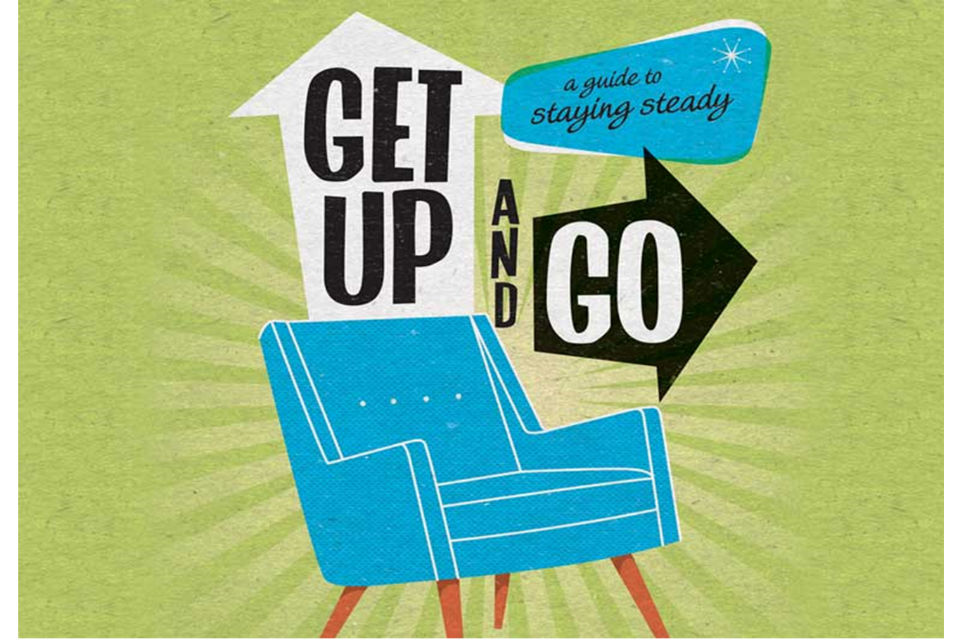Dementia Fall Risk - Truths
Dementia Fall Risk - Truths
Blog Article
Dementia Fall Risk - Questions
Table of ContentsOur Dementia Fall Risk IdeasThe Ultimate Guide To Dementia Fall RiskDementia Fall Risk Can Be Fun For AnyoneAn Unbiased View of Dementia Fall Risk5 Simple Techniques For Dementia Fall Risk
Evaluating fall risk helps the whole healthcare team create a much safer environment for every individual. Ensure that there is a marked area in your medical charting system where staff can document/reference scores and document relevant notes connected to drop prevention. The Johns Hopkins Autumn Danger Analysis Tool is among many tools your staff can make use of to assist prevent damaging clinical events.Person falls in health centers prevail and debilitating unfavorable events that linger in spite of decades of initiative to minimize them. Improving interaction across the examining nurse, treatment group, patient, and individual's most involved loved ones may reinforce loss prevention initiatives. A team at Brigham and Women's Healthcare facility in Boston, Massachusetts, looked for to establish a standardized loss avoidance program that centered around enhanced interaction and individual and family members interaction.

The innovation group emphasized that successful application relies on patient and team buy-in, assimilation of the program right into existing workflows, and integrity to program processes. The team kept in mind that they are coming to grips with just how to make sure continuity in program execution throughout durations of crisis. Throughout the COVID-19 pandemic, as an example, a rise in inpatient drops was connected with constraints in client engagement along with constraints on visitation.
The Basic Principles Of Dementia Fall Risk
These incidents are commonly thought about avoidable. To execute the intervention, organizations need the following: Accessibility to Fall TIPS sources Loss pointers training and retraining for nursing and non-nursing team, consisting of new registered nurses Nursing process that permit for person and family involvement to conduct the falls assessment, guarantee use of the prevention plan, and conduct patient-level audits.
The results can be highly damaging, often increasing person decline and triggering longer medical facility remains. One research estimated keeps raised an added 12 in-patient days after a person fall. The Loss TIPS Program is based upon engaging individuals and their family/loved ones throughout three primary procedures: assessment, personalized preventative interventions, and auditing to make sure that individuals are involved in the three-step fall prevention procedure.
The person evaluation is based on the Morse Fall Range, which is a validated fall danger assessment device for in-patient medical facility setups. The range consists of the six most usual reasons clients in hospitals fall: the patient fall background, risky conditions (including polypharmacy), use of IVs and various other external gadgets, psychological condition, stride, and wheelchair.
Each danger factor links with one or more workable evidence-based treatments. The nurse creates a plan that incorporates the interventions and is visible to the treatment team, person, and family on a laminated poster or published aesthetic help. Registered nurses create the plan while fulfilling with the person and the person's family members.
Excitement About Dementia Fall Risk
The poster acts as a communication device with various other participants of the person's treatment group. find more information Dementia Fall Risk. The audit element of the program includes examining the person's knowledge of their danger variables and prevention plan at the device and health center levels. Nurse champions perform a minimum of five individual interviews a month with clients and their households to look for understanding of the fall avoidance plan

A projected 30% of these falls outcome in injuries, website link which can range in severity. Unlike various other negative events that require a standardized professional response, autumn prevention depends extremely on the requirements of the individual.
The Ultimate Guide To Dementia Fall Risk

Based on bookkeeping outcomes, one website had 86% conformity and two websites had over 95% conformity. A cost-benefit analysis of the Autumn TIPS program in eight health centers estimated that the program price $0.88 per person to carry out and caused savings of $8,500 per 1000 patient-days in straight expenses associated with the avoidance of 567 falls over three years and 8 months.
According to the technology team, organizations thinking about executing the program should perform a readiness analysis and falls avoidance spaces analysis. 8 In addition, organizations must make certain the essential facilities and operations for execution and establish an implementation plan. If one exists, the organization's Loss Avoidance Task Force should be associated with preparation.
Everything about Dementia Fall Risk
To begin, companies ought to guarantee completion of training components by registered nurses and nursing assistants - Dementia Fall Risk. Healthcare facility personnel must analyze, based on the requirements of a healthcare facility, whether to utilize a digital wellness record hard copy or paper version of the loss prevention plan. Applying teams need to recruit and train nurse champs and establish procedures for auditing and coverage on autumn information
Personnel need to be included in the procedure of revamping the workflow to involve clients and family members in the evaluation and prevention plan procedure. Systems should remain in location to ensure that units can comprehend why a loss occurred and remediate the reason. Much more specifically, nurses need to have channels to offer recurring feedback to both personnel and system leadership so they can readjust and boost fall prevention process and interact systemic troubles.
Report this page